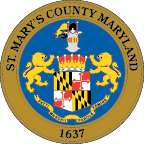Materials Testing
Destructive, non-destructive, compaction, proof rolling, skid resistance, mix design, slurry, emulsified asphalt, port-land cement concrete, moisture density, in-place soil density, split spoon, gradation, liquid limit, plasticity index, wash test (#200 sieve), viscosity, residue, compressive strength, moisture density (proctor), asphalt content, load bearing, nuclear density, slump, soil borings, well drilling, gravel and stone sampling etc. are some of the services certified through a licensed Geo-technical Engineer and/or are required under the provisions of the individual construction contract and in accordance with the Road Ordinance. The specifications for the testing of materials are those of the "Standard Specifications for Construction and Materials, Maryland Department of Transportation, State Highway Administration".
Materials testing for capital projects and subdivision road construction work is independently performed via an independent certified contractor.
Training
The Manager of Construction & Inspections is State certified as a Radiation Safety Officer for nuclear density testing. Inspectors are also certified in Radiological Safety, Gauge Operation & Usage and Maryland Sediment-Erosion Control Practices.
Quality Control
For construction projects the contractor is responsible for the material testing to assure the quality of the product and conformance to the specifications. Quality control testing of random field testing is performed by a licensed, certified testing agency at the contractor's expense. The types of tests and frequency are typically specified with each contract. Test results must be submitted no later than five (5) calendar days after the sampling of each material. An inspector is present to ensure the testing is being performed and to verify that the material being tested originates from the actual construction site.
